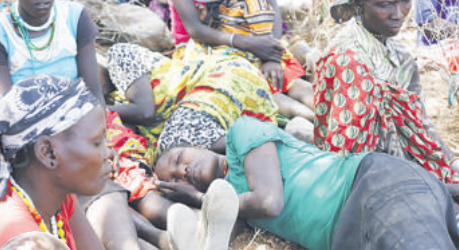×
The Standard e-Paper
Fearless, Trusted News

Eight elderly emaciated men and women lie under a shade at Todo Primary School in Kolowa, Baringo County
Hardly 30 metres from the shade is a group of men building a classroom. The construction workers occasionally prepare lunch and share it with Lotudo Lokuriang and his group, but this is never a guarantee.